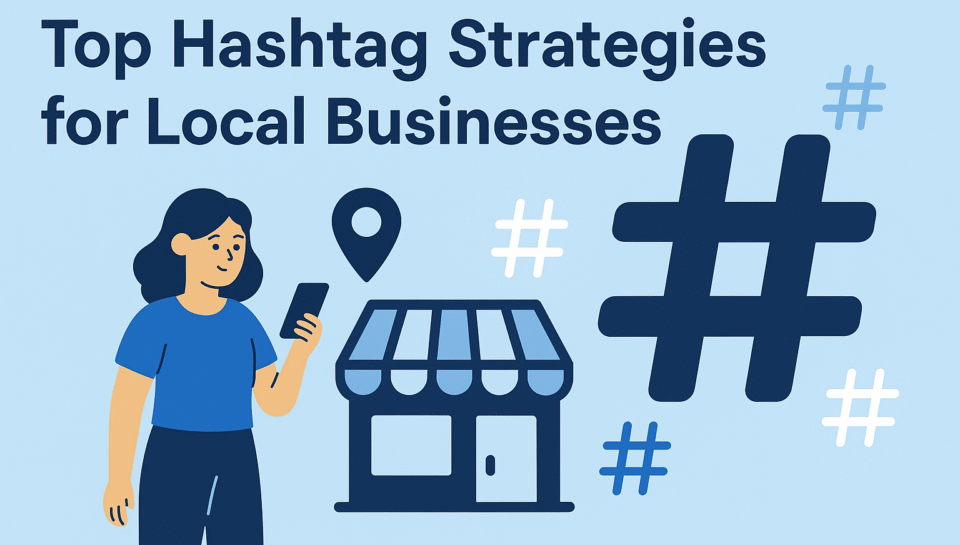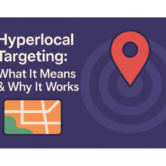
Top Hashtag Strategies for Local Businesses
Introduction
In today’s digital landscape, social media has become an essential marketing tool for local businesses. While creating quality content is important, using the right hashtags can significantly amplify your reach and engagement. Hashtags serve as digital signposts that help potential customers discover your business when they’re searching for relevant products or services in your area. For local businesses with limited marketing budgets, hashtags offer a cost-effective way to increase visibility and connect with the community.
This guide explores proven hashtag strategies specifically tailored for local businesses looking to strengthen their online presence and drive foot traffic to their physical locations.
Why Hashtags Matter for Local Businesses
Hashtags might seem like a simple concept, but they pack a powerful punch when used strategically. Here’s why they’re particularly valuable for local businesses:
- Increased discoverability: Hashtags categorize your content, making it easier for potential customers to find you
- Community building: Local hashtags foster a sense of community and connection with nearby customers
- Trend participation: Jumping on trending hashtags can put your business in front of a larger audience
- Cost-effective marketing: Unlike paid advertising, hashtags are completely free to use
- Cross-platform utility: Hashtags work across most major social platforms including Instagram, Twitter, LinkedIn, and increasingly on Facebook
Types of Hashtags Local Businesses Should Use
Location-Based Hashtags
Location hashtags are perhaps the most valuable type for local businesses. They connect you directly with people in your geographical area.
Strategy tips:
- Use city/town hashtags: #SeattleBusiness #ChicagoEats #BostonShopping
- Include neighborhood-specific tags: #DowntownDallas #BrooklynHeights #MissionDistrict
- Add regional markers: #PacificNorthwest #NewEnglandLife #SouthernHospitality
Industry-Specific Hashtags
Industry hashtags help you reach people interested in your particular business category.
Strategy tips:
- Use broad industry terms: #RetailTherapy #CoffeeShop #BookstoreLife
- Include specialized niches: #CraftBakery #OrganicFarmers #VintageClothing
- Add service-specific tags: #HairSalonNearMe #LocalPlumber #MobileGroomer
Campaign-Specific Hashtags
Creating unique hashtags for your business campaigns helps track engagement and builds brand recognition.
Strategy tips:
- Keep it short and memorable: #EatLocal2025 #ShopSmithsVille
- Make it brand-specific: #JoesBrewSpecials #SarahsBoutiqueFinds
- Use for events or promotions: #MainStreetFestival #SummerSidewalkSale
How to Research Effective Hashtags for Your Local Business
Analyze Competitors’ Hashtag Usage
Learning from successful competitors can jumpstart your hashtag strategy.
Action steps:
- Identify 5-10 successful local businesses similar to yours
- Review their most engaging posts and note which hashtags they use
- Look for patterns in hashtag types and engagement levels
- Adapt relevant hashtags for your own content
Use Hashtag Research Tools
Several tools can help you discover popular and relevant hashtags.
Recommended tools:
- Hashtagify: Analyzes hashtag performance and suggests related tags
- RiteTag: Provides real-time hashtag suggestions based on your content
- Later: Offers hashtag suggestions specifically for Instagram
- Sprout Social: Provides hashtag performance metrics and recommendations
Monitor Local Events and Trends
Staying current with local happenings provides opportunities for timely, relevant hashtags.
Action steps:
- Follow local news outlets and community pages
- Subscribe to your city’s event calendars
- Join neighborhood groups on social platforms
- Track seasonal activities specific to your region
Best Practices for Hashtag Implementation
Platform-Specific Strategies
Each social media platform has unique characteristics that affect hashtag usage.
Instagram:
- Use up to 30 hashtags (though 10-15 is often more effective)
- Consider placing hashtags in the first comment rather than the caption
- Create a Highlights collection of your most-used hashtags for easy access
Twitter:
- Limit to 1-2 hashtags per tweet for optimal engagement
- Place hashtags within the sentence when possible
- Monitor trending hashtags for timely opportunities
Facebook:
- Use hashtags sparingly (1-3 per post)
- Focus on community and event-specific tags
- Create unique campaign hashtags for promotions
LinkedIn:
- Limit to 3-5 relevant, professional hashtags
- Use industry-specific and skill-based hashtags
- Include broader business community tags
Creating a Hashtag Bank
Maintaining a curated list of effective hashtags saves time and ensures consistency.
How to build your hashtag bank:
- Create categories (location, industry, seasonal, etc.)
- Research 15-20 hashtags for each category
- Track performance to identify top performers
- Update quarterly to keep content fresh and relevant
Measuring Hashtag Performance
To optimize your strategy, regularly evaluate which hashtags drive the most engagement.
Metrics to track:
- Reach and impressions
- Follower growth
- Post engagement (likes, comments, shares)
- Click-through rates to your website
- In-store mentions of social media
Advanced Hashtag Strategies for Local Growth
User-Generated Content Campaigns
Encourage customers to create content about your business using your branded hashtags.
Implementation tips:
- Create an easy-to-remember branded hashtag
- Offer incentives for customers who use your hashtag
- Feature user content on your profiles
- Create in-store signage promoting your hashtag
Example: A local coffee shop might use #JavaJoesCommunity and feature weekly customer photos.
Hashtag Challenges
Create engaging challenges that encourage community participation and sharing.
Steps to launch a challenge:
- Design a simple, fun activity related to your business
- Create a unique, catchy hashtag
- Offer prizes or recognition for participants
- Engage with all submissions
Example: A local bookstore might create #MyHometown30DayRead challenge, encouraging customers to read books set in their region.
Collaborative Local Hashtags
Partner with neighboring businesses to create shared hashtags that benefit the entire community.
Collaboration ideas:
- District-specific tags: #DowntownShopsLocal #ArtDistrictEats
- Shopping event tags: #FirstFridayMarket #SmallBusinessSaturday
- Seasonal campaigns: #SummerInTheSquare #WinterVillageShops
Common Hashtag Mistakes to Avoid
Overusing Trending but Irrelevant Hashtags
While trending hashtags offer visibility, they must relate to your content.
Best practice: Only use trending hashtags when you can create authentic, relevant content that adds value to the conversation.
Hashtag Overload
Using too many hashtags can make your content look spammy and desperate.
Best practice: Focus on quality over quantity, using a strategic mix of broad and niche hashtags relevant to your specific post.
Neglecting to Research Hashtag Meanings
A seemingly innocent hashtag might have unexpected or inappropriate associations.
Best practice: Always search a hashtag before using it to ensure it represents what you think it does and isn’t associated with controversial content.













